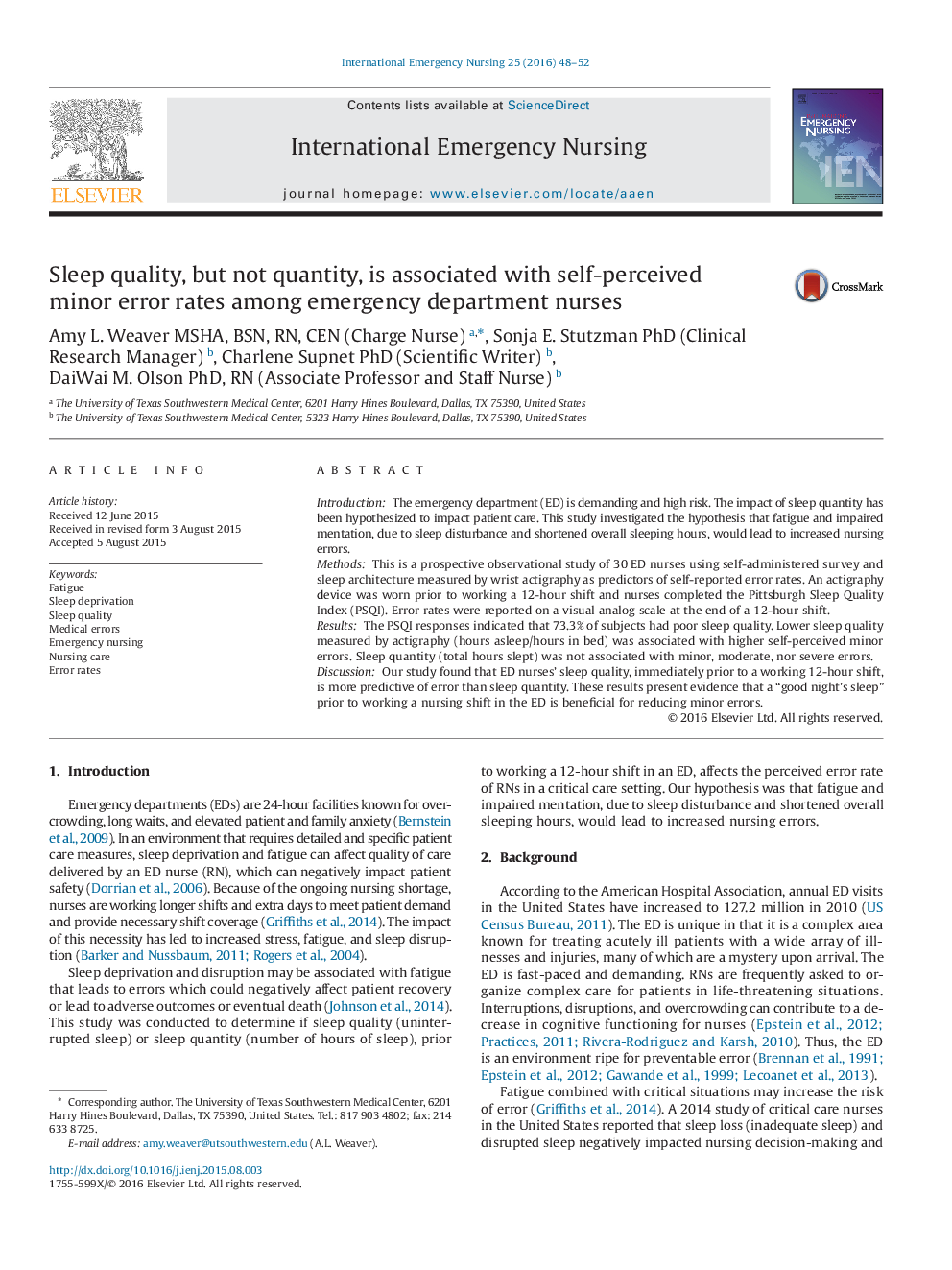| کد مقاله | کد نشریه | سال انتشار | مقاله انگلیسی | نسخه تمام متن |
|---|---|---|---|---|
| 5863311 | 1562840 | 2016 | 5 صفحه PDF | دانلود رایگان |
- Nurses slept an average of 6.6 hours prior to working a 12-hour shift.
- Day shift nurses spent more time in bed, but had similar sleep hours as night shift nurses.
- As measured by PSQI scores, 73.3% of nurses report poor sleep quality.
- Sleep quality has a higher impact on performance than does sleep quantity.
- Error rates (trichotomized) were similar across day and night shift nurses.
IntroductionThe emergency department (ED) is demanding and high risk. The impact of sleep quantity has been hypothesized to impact patient care. This study investigated the hypothesis that fatigue and impaired mentation, due to sleep disturbance and shortened overall sleeping hours, would lead to increased nursing errors.MethodsThis is a prospective observational study of 30 ED nurses using self-administered survey and sleep architecture measured by wrist actigraphy as predictors of self-reported error rates. An actigraphy device was worn prior to working a 12-hour shift and nurses completed the Pittsburgh Sleep Quality Index (PSQI). Error rates were reported on a visual analog scale at the end of a 12-hour shift.ResultsThe PSQI responses indicated that 73.3% of subjects had poor sleep quality. Lower sleep quality measured by actigraphy (hours asleep/hours in bed) was associated with higher self-perceived minor errors. Sleep quantity (total hours slept) was not associated with minor, moderate, nor severe errors.DiscussionOur study found that ED nurses' sleep quality, immediately prior to a working 12-hour shift, is more predictive of error than sleep quantity. These results present evidence that a “good night's sleep” prior to working a nursing shift in the ED is beneficial for reducing minor errors.
Journal: International Emergency Nursing - Volume 25, March 2016, Pages 48-52
